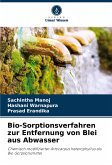
Broschiertes Buch
Chemisch modifizierter Artocarpus heterophyllus als Bio-Sorptionsmittel
30. Juli 2024
Verlag Unser Wissen
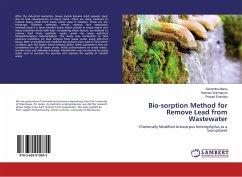
24,99 €
Versandfertig in 6-10 Tagen
Broschiertes Buch
Chemically Modified Artocarpus heterophyllus as a bio-sorbent
25. September 2017
LAP Lambert Academic Publishing
25,99 €
Versandfertig in 1-2 Wochen
Broschiertes Buch
Artocarpus heterophyllus químicamente modificado como biosorbente
30. Juli 2024
Ediciones Nuestro Conocimiento
25,99 €
Versandfertig in 6-10 Tagen
Broschiertes Buch
Artocarpus heterophyllus modificato chimicamente come bioassorbente
30. Juli 2024
Edizioni Sapienza
25,99 €
Versandfertig in 6-10 Tagen
Broschiertes Buch
Artocarpus heterophyllus quimicamente modificado como bio-sorvente
30. Juli 2024
Edições Nosso Conhecimento
25,99 €
Versandfertig in 6-10 Tagen
Broschiertes Buch
Artocarpus heterophyllus modifié chimiquement comme bio-sorbant
30. Juli 2024
Editions Notre Savoir
Ähnliche Artikel

Broschiertes Buch
29. März 2024
Verlag Unser Wissen
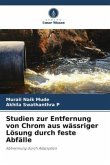
Broschiertes Buch
Abtrennung durch Adsorption
31. Juli 2022
Verlag Unser Wissen
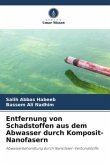
Broschiertes Buch
Abwasserbehandlung durch Nanofaser-Verbundstoffe
3. Januar 2023
Verlag Unser Wissen
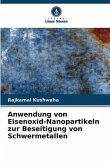
Broschiertes Buch
1. Februar 2023
Verlag Unser Wissen
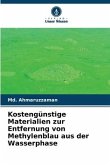
Broschiertes Buch
28. März 2023
Verlag Unser Wissen
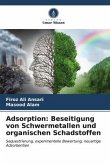
Broschiertes Buch
Sequestrierung, experimentelle Bewertung, neuartige Adsorbentien
31. Oktober 2023
Verlag Unser Wissen
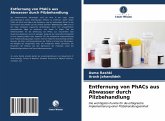
Broschiertes Buch
Die wichtigsten Punkte für die erfolgreiche Implementierung einer Pilzbehandlungseinheit
14. Juli 2021
Verlag Unser Wissen
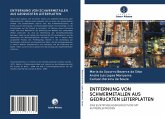
Broschiertes Buch
EINE ELEKTROABLAGERUNGSSTUDIE MIT KUPFERELEKTRODEN
30. September 2020
Verlag Unser Wissen
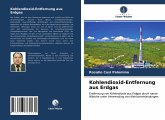
Broschiertes Buch
Entfernung von Kohlendioxid aus Erdgas durch nasse Wäsche unter Verwendung von Natriumverbindungen
26. Februar 2021
Verlag Unser Wissen
Ähnlichkeitssuche: Fact®Finder von OMIKRON
